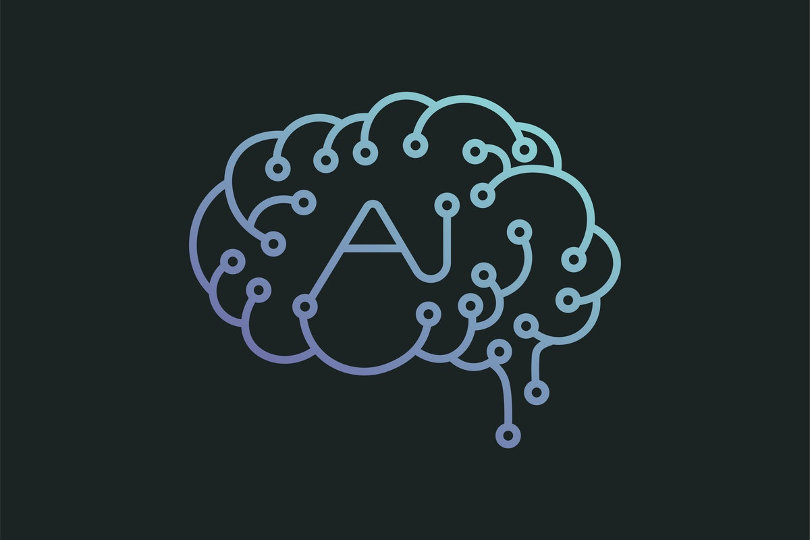The rise of artificial intelligence (AI) and automation has left many freelancers anxious about the future of their careers. Questions loom large: Will AI replace me? Can I compete with machines?
In this article, we’ll explore how you can not only survive but thrive in the age of AI by adapting and harnessing its potential.
The Freelancing Landscape in the Age of AI
Freelancing has experienced explosive growth in recent years, offering professionals greater flexibility and autonomy in their careers. However, the landscape is evolving rapidly, and AI is playing a significant role in reshaping it.
The gig economy, which once thrived on tasks that required human expertise and creativity, is now encountering AI-powered tools and platforms that can handle a variety of tasks more efficiently than humans. This shift is most noticeable in roles involving data entry, basic writing, customer support, and even some aspects of graphic design. As AI systems become more sophisticated, they threaten to replace humans in routine, rule-based tasks.
But the story is not all bleak. AI also presents freelancers with opportunities they can leverage to their advantage. As businesses embrace AI to streamline operations and make data-driven decisions, they require human expertise to interpret the results, provide context, and make strategic decisions based on AI-generated insights.
Moreover, AI has created entirely new freelance niches. AI trainers, data annotators, and machine learning consultants are in high demand as companies seek to improve the accuracy and capabilities of their AI systems. Freelancers who understand AI can position themselves as invaluable partners in the development and implementation of these technologies.


Understanding AI, Your Frenemy
Before diving into strategies for thriving in the age of AI, it’s crucial to understand what AI is and isn’t, and recognize its inherent limitations:
AI is a Tool, Not a Mind
AI, at its core, is a tool developed and controlled by humans. It lacks consciousness, emotions, and self-awareness. It operates based on algorithms and data, performing tasks it has been trained for without any inherent understanding or intent. It’s essential to remember that AI systems do not possess creativity, empathy, or intuition.
Strengths of AI
AI excels in several areas, making it a powerful asset in many industries. It can process vast amounts of data quickly, identify patterns, and make predictions based on historical information. Additionally, AI can perform repetitive, rule-based tasks with incredible precision and consistency, reducing the margin for error.
Limitations of AI
Despite its strengths, AI has several limitations:
- Lack of Contextual Understanding: AI struggles to understand context and nuance, often making decisions solely based on data without considering the broader picture.
- Absence of Common Sense: AI lacks common-sense reasoning, which humans possess naturally. It may make errors when faced with situations that require intuitive judgment.
- Inability to Adapt Creatively: AI can’t adapt to entirely new situations or think creatively. It relies on pre-programmed algorithms and cannot generate truly original ideas.
- Ethical and Bias Concerns: AI can perpetuate biases present in its training data. It’s essential to be aware of the ethical implications and potential biases in AI systems.
Complementing AI with Human Skills
To succeed in a world increasingly influenced by AI, freelancers should recognize that AI is a tool to augment human capabilities, not replace them. The key is to leverage the strengths of AI while focusing on what humans excel at:
- Creativity: Humans are unparalleled in their ability to ideate, innovate, and create new solutions. AI can assist by providing data-driven insights, but the creative spark comes from humans.
- Emotional Intelligence: AI cannot empathize, understand emotions, or provide the human touch required in many client interactions. Freelancers can build strong client relationships based on empathy and emotional intelligence.
- Complex Problem-Solving: Complex, non-standard problems often require human judgment and adaptability, areas where AI struggles.
- Ethical Decision-Making: AI lacks moral and ethical reasoning. Freelancers can provide ethical guidance and ensure responsible AI usage.
By understanding these nuances, freelancers can position themselves to work in harmony with AI, utilizing it as a tool to enhance their capabilities rather than viewing it as a threat. In the subsequent sections, we’ll explore practical strategies to achieve this synergy and ensure a successful freelancing career in the AI-driven world.


Adapting to AI: Strategies for Freelancers
As freelancers navigate the ever-evolving landscape of work, the integration of AI becomes increasingly crucial. Instead of fearing AI as a disruptor, freelancers can embrace it as a powerful ally in their career journey.
Here are the practical strategies that freelancers can employ to not only coexist with AI but also harness its potential to thrive in the competitive freelancing market:
- Skill Up: Embrace lifelong learning. Invest time in acquiring new skills that complement AI. Focus on skills that require critical thinking, emotional intelligence, and creativity. For example, content creation, design, and strategy development.
- Niche Specialization: Consider specializing in a niche area where AI struggles to replicate human expertise. Become the go-to expert in your field, offering insights and value that machines cannot match.
- Collaboration with AI: View AI as a partner, not a threat. Embrace AI tools and platforms that can enhance your productivity and decision-making. For instance, use AI-powered analytics to gain deeper insights into your client’s needs.
- Building a Personal Brand: Cultivate a strong personal brand that sets you apart in a crowded marketplace. Showcase your expertise, ethics, and unique personality. A powerful personal brand can attract clients who value your distinctiveness.
- Networking and Community Building: In the freelancing world, connections matter. Network with peers and professionals to stay updated on industry trends and opportunities. Collaborate on projects, share knowledge, and build a support system.
- Embracing Change and Staying Resilient: Change is constant, and resilience is key. Develop a growth mindset that embraces change and challenges. Remember that setbacks are opportunities to learn and grow. Seek support from mentors or therapists if the emotional toll becomes overwhelming.
![]()
![]()
Takeaway
The fear of AI impacting freelancing careers is valid but not paralyzing. Freelancers must adapt to stay competitive. While some roles may become automated, the core of freelancing—offering specialized skills, creativity, and personal touch—remains unchanged.
Freelancers should see AI as an augmenting tool, not a direct competitor. AI can handle routine tasks but lacks the depth of human insight, intuition, and interpersonal skills. Clients value freelancers for their ability to understand unique challenges, provide innovative solutions, and build genuine connections.
Freelancers are architects of human-AI collaborations, ensuring AI enhances rather than replaces their expertise. Embracing this perspective empowers freelancers to evolve, equipped with the skills and mindset to thrive in an AI-driven world.






